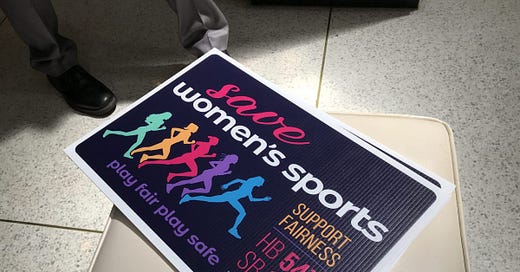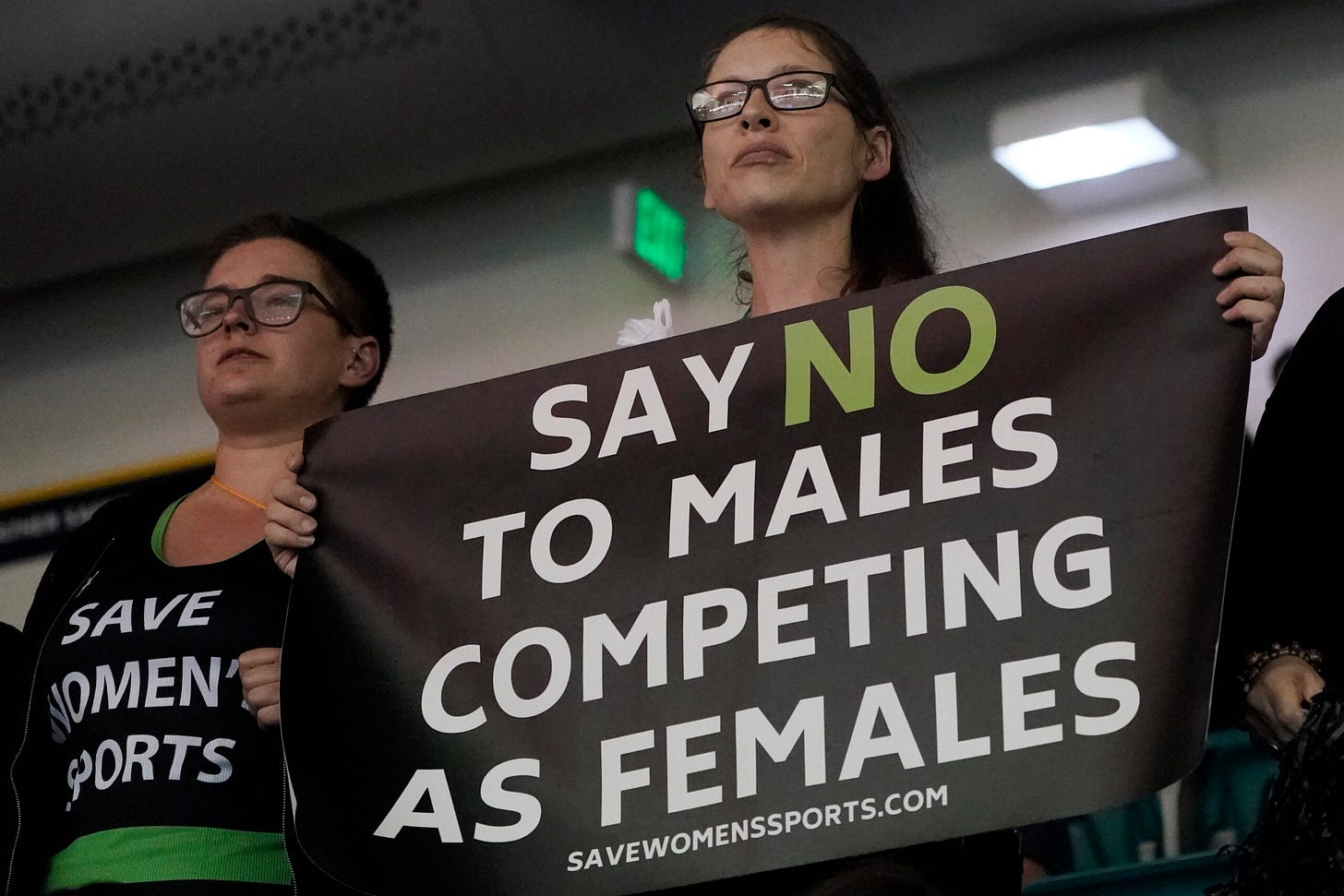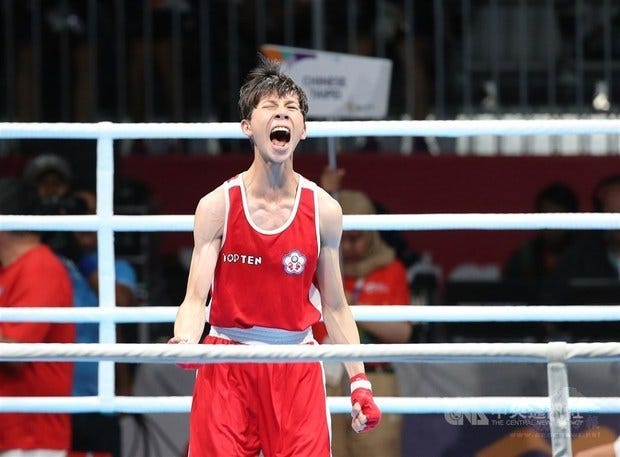On July 1, the University of Pennsylvania reached a historic agreement with the U.S. Department of Education that bars males from competing in women’s sports under the institution’s Title IX obligations. This marks a dramatic turning point in the international debate over fairness in sports and the rights of female athletes.
The case that brought it all to a head? Lia Thomas, a male swimmer who identifies as a woman, who made headlines after breaking records and dominating women’s collegiate swimming in 2022. Following a federal investigation, UPenn agreed to a wide-reaching settlement: biological males will no longer be permitted to participate in female athletic programs. The university will also issue apologies to affected female athletes, update records to reflect biology-based sex categories, and publicly acknowledge that it violated Title IX, the U.S. law meant to protect women from sex-based discrimination in education and sports.
This decision doesn’t come out of nowhere. It’s the result of rising public backlash, legal scrutiny, and a federal executive order under the current U.S. administration requiring institutions to align with biological sex when determining athletic eligibility. Don’t mistake this dramatic shift as a genuine realization that what they did was deeply unethical. Universities that fail to comply risk losing federal funding. The White House in March cut off $175 million in federal funds for Penn related to this issue. It’s not clear whether that money will be restored, but UPenn sure is groveling for it back. And that’s fine by me!
This matters far beyond the Ivy League. UPenn is just the first domino. Other universities are likely to follow, and athletic associations, including the NCAA, are revisiting their sporting policies to reflect this new legal reality.
But as the U.S. pivots toward protecting female sports, the question looms: what about Taiwan?
Taiwan’s Policy: Males Welcome in Girls’ Sports
In stark contrast to the U.S. shift, Taiwan has embraced gender identity-based ideology in school athletics. Since 2023, Taiwanese high schools have permitted self-identified transgender and “non-binary” students to participate in sports in accordance with their gender identity, regardless of biological sex. These policies were introduced under the banner of gender equity and supported by amendments to the Gender Equity Education Act.
This means that in Taiwan today, a male student who identifies as female may join girls’ sports and compete against female peers.
It only recently came to light that a trans-identified male competed as a woman in Taiwan’s National Intercollegiate Athletic Games as far back as 2018. Many runners and coaches from other schools knew this athlete was male, and representatives of Taiwan’s National Tsinghua University questioned his ability to compete against female athletes in track and field events. Because there were no clear rules for transgender participation in Taiwan, he was able to compete in the female division, destroying the previous record held by a woman.
Where are the safeguards for fairness? To date, there has been no formal investigation into whether such policies violate Taiwan’s constitutional protections for women or its commitments to equality in education. While global athletic organizations like World Aquatics, World Rugby, and World Athletics have begun limiting male inclusion in elite women’s competitions, Taiwan has taken the opposite approach, encouraging full inclusion without meaningful discussion or consent from female athletes.
Taiwanese lawmakers have not debated these issues in the Legislative Yuan. The Ministry of Education continues to issue guidance and policies administratively, without public input or scientific review.
Taiwan’s progressive posture on some issues, including the legalization of same-sex marriage, has been internationally celebrated. And rightly so. But when it comes to sex vs. gender, Taiwan has yet to have the public reckoning that is now underway in the West. The most controversial figure in sports has been Olympic boxer Lin Yu-ting. Taiwanese President Lai Ching-te and former President Tsai Ing-wen praised Lin as a role model, never once acknowledging the controversy regarding Lin’s sex. Meanwhile, Taiwanese media largely avoided the issue, focusing instead on Lin’s victories and perseverance.
Behind the praise lies an uncomfortable truth: Lin Yu-ting appears to be an intersex male, and the government has made no effort to transparently address how athletes like Lin fit into single-sex sports categories. Lin has refused all testing, most recently refusing a test with results that would have been made public for a boxing match in Kazakhstan, and due to the lack of coherent domestic guidelines, remains eligible to compete nationally.
So while the U.S. sees vocal female athletes, legal campaigns, and parent-led movements demanding single-sex protections, Taiwan remains largely silent. The Ministry of Education appears more concerned with maintaining “harmony” than protecting fairness.
But silence does not mean consent.
Many Taiwanese parents, students, and teachers are deeply uncomfortable with the idea of males competing in girls’ sports. Research published by Taiwanese scholars in the Archives of Sexual Behavior has shown that there is strong public opposition in Taiwan to allowing legal change of sex markers in the country through self-identification. Based on surveys of the public, most respondents (91.6%) indicated an overwhelming negative attitude about sex self-identification and its impact on women’s safety, women’s rights, and the law and society in Taiwan. Yet few dare to speak up for fear of social backlash, job loss, or being branded discriminatory.
Will Taiwan Reconsider?
Taiwan is watching the U.S. closely. If Title IX-style legal challenges gain traction elsewhere, it’s possible Taiwan will be forced to review its policies, especially as international athletic bodies (like World Aquatics or the IOC) tighten regulations on male inclusion in women’s categories.
But unless the public demands clarity and courage from policymakers, Taiwan will remain behind, allowing a dangerous precedent to stand: that a teenage girl can be forced to compete against a male, lose her place, and be told to smile and stay silent.
In a conversation with me earlier today, a representative of No Self ID – Taiwan (NSIDtw), speaking on condition of anonymity, reaffirmed the organization’s position regarding the Ministry of Education’s policies on male participation in female sports. NSIDtw is calling for the immediate revocation of the “Transgender Participation Guidelines” for the National High School Games and National Intercollegiate Athletic Games. They are also demanding the removal of all Ministry of Education records, titles, and similar recognitions previously awarded to trans-identified male athletes in female categories, with full reinstatement of those honors to the rightful female athletes in each respective competition.
The UPenn ruling is a win for women’s sports and a reminder that biology matters. It sets a legal and ethical precedent that may ripple globally.
Taiwan, a nation that prides itself on both progress and justice, must now decide: will it stand with girls and women or let imported ideology erase them?
*NoSelfID Taiwan, the only organization in Taiwan documenting the spread of gender identity ideology in the country, suggests locals and permanent residents appeal to legislators and executive agencies. A petition letter is available to download on their site to express your concern over fairness in women’s sports in Taiwan.







